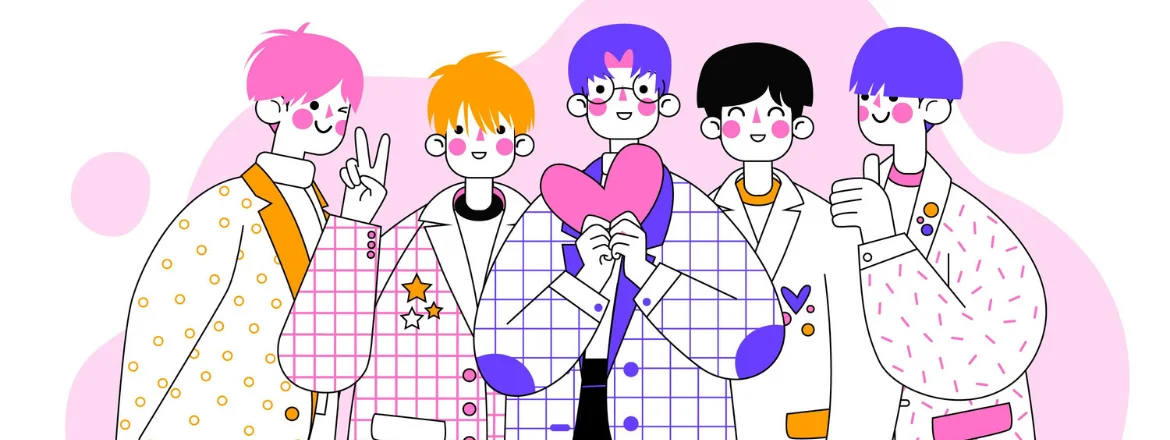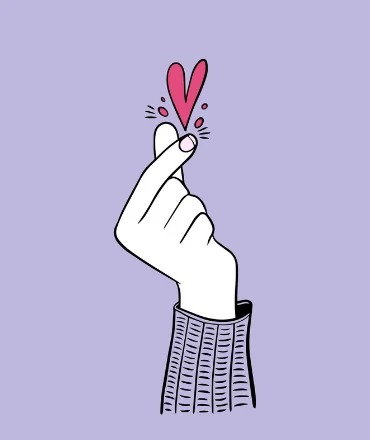K-pop band BTS Fuels South Korean IP Economy

Table of Contents
South Korea has been taking the world by storm in what many are calling the Korean Wave or Korean Pop (K-pop). The phenomenon is driven by music, movies, and dramas from a small Asian country. These intellectual properties (IP) driven industries are not just providing good entertainment, but are generating a lot of income for the nation. In this article, we discuss the significant GDP BTS contributes to the Korean economy.
Global sensation Bangtan Sonyeondan’s (BTS) first all English hit song, Dynamite, not only won the group its first Billboard number one hit. In addition, BTS's contribution to the Korean economy was a whopping $1.43 billion. According to a study by the South Korean Ministries of Culture, Sports and Tourism, and Korea Culture & Tourism, the revenue generated from that one song contributed towards providing 7,928 jobs during the COVID-19 pandemic.
How exactly does intellectual property work in the entertainment industry?
The ‘product’ offering in entertainment is only valuable thanks to intellectual property, copyrights, and trademarks. Almost all entertainment contracts primarily deal with ownership rights and intellectual property (IP) use. In the case of K-pop, for instance, songs, lyrics, instrumentals, music videos, choreography, endorsements, and promotional material are all subject to copyrights. As such, it is easy to understand why the rise of BTS and K-pop would lead to a corresponding growth in South Korea’s IP economy.
The Rise of K-Pop
How did K-Pop grow to be such a vital component of the South Korean intellectual property economy?
First off, K-Pop or Korean Pop is a genre of music originating from South Korea. Modern K-Pop can trace its roots to the 1950s thanks to a group called The Kim Sisters. The Kim Sisters were the true pioneers that popularized Korean pop in the West. In fact, the trio was the first Korean group to make it onto the American Billboard chart.
Modern K-Pop is very activism focused with the collective fandoms occasionally coming together to stand against or for certain causes. For instance, the Black Lives Matter movement and stop Asian Hate. In addition, the fandoms can mobilize to donate towards worthy causes like the India COVID-19 relief campaign or even rise to mute politicians like Trump during the 2020 presidential runoff. However, this can be attributed to 1970s K-Pop singer Kim Min-ki. Kim Min-ki created pro-democracy anthems that eventually led to his albums being banned.
However, the South Korean government relaxed censorship rules in the late 1980s as part of measures to diversify the country's economy. With the more accommodating rules, K-Pop and IP began to flourish in South Korea.
The ‘product’ offering in entertainment is only valuable thanks to intellectual property, copyrights, and trademarks.
K-Pop Generations
In the 1990s Seo Taiji and Boys burst on the scene creating most of what we recognized as K-Pop today. Seo Taiji fused Korean pop, American pop, and choreography creating a wildly popular music experience. However, the rise of the group created a formula that was quickly replicated to form the first generation of K-Pop. Notably, the first trained K-Pop group was SM group H.O.T. Other first-generation groups include Sechs Kies, Fin. K.L, and girl group S.E.S.
K-Pop generations are often disputed, but for the sake of this article, the second generation started in 1999 with the debut of Groove Over Dose (G.O.D). Other popular second-generation groups include Shinhwa, BoA, TVXQ, Super Junior, BIGBANG, Girls Generation, and F.T. ISLAND. It was during the second generation that K-Pop started aggressively spreading beyond Korea and the term Korean Wave or “Hallyu“ was first coined.
During this generation, K-Pop groups began embarking on world tours and idols began creating fan-targeted content other than music. K-Pop idols began appearing on TV shows, creating personalized reality programs, and starring in K-Dramas.
The dominant K-Pop groups at present are mostly considered third-generation groups. These are SHINee, 2 PM, INFINITE, f(x), 2NE1, Miss A, SISTAR, BTS, EXO, BLACKPINK, Seventeen, MonsterX, GOT7, Twice, and more.
The impact of social media began to influence K-Pop during this generation. For instance, in 2012 PSY's Gangnam Style became the most streamed song on YouTube. Audiences across the globe were simultaneously introduced to K-Pop with that one song. Streaming platforms like Netflix also cashed in on the Kpop hype with a highly popular documentary based on mega-popular K-pop girl group BLACKPINK.
The fourth generation is the emerging generation. It's less manufactured compared to the previous generations enjoying more artistic and personal freedom. In addition, this generation is often not restricted by roles as group members are multi-talented and able to serve as singing, rapping, and dancing visuals. Fourth-generation groups include Stray Kids, TXT, ATEEZ, ITZY, Treasure, ENHYPEN, Aespa, and LOONA.
However, what drives the K-Pop industry is content. In the rest of the world, artists can take a sabbatical for years between albums. But, in K-Pop it is not uncommon for groups to release new music twice or thrice a year. Central to new music is the concept of comebacks. These events firstly denote the first time a K-pop group performs after releasing new music. Also, a K-Pop group’s comeback is like nothing else in the rest of the world. Fans mobilize to stream, set records, break records, mass buy albums, and vote for their favorite groups to win weekly music awards. Starting from the music itself, the choreography, comeback stage, copyrights, album sales, and merch are all pieces of the puzzle that has fueled South Korea’s IP economy.
How BTS Paved The Way
In 2017 BTS performed for the first time at a western music award show. This is now the iconic American Music Award (AMA) stage. Before that, the group won Billboard's Top Social Artist award. An award the K-Pop group has subsequently won ever since.
The Top Social Award is important because it shows the power of BTS’s fanbase, ARMY. In fact, BTS often credits ARMY for the group’s success. However, BTS and ARMY would not have a close relationship without BTS’s robust IP-driven content ecosystem. But how did BTS manage to build so much content with high engagement?
Building an IP Empire
BTS members are Kim NamJoon (RM), Kim SeokJin (Jin), Min YoonGi (Suga), Jung HoSeok (J-Hope), Park JiMin (Jimin), Kim TaeHyung (V), and Jeon JungKook (Jungkook). When BTS launched on June 13 2013 it was the first group to launch out of its then tiny label, Big Hit Entertainment. However, at that time K-pop was ruled by the Big 3 agencies SM, JYP, and YG. However, as a new entrant, Big Hit did not have the financial clout to adequately promote BTS. This led Bit Hit CEO Bang Si-Hyuk to explore alternative avenues to promote the group.
The first step was creating in-house variety shows. This is because the Big 3 dominated the media to the point where BTS was rarely invited to guest star on TV shows. Of note, variety shows are a mainstream entertainment staple in South Korea, similar to game shows in the west. As a result, Big Hit developed in-house shows like Rookie King, American Hustle Life, BTS Gayo, BTS Bokbulbok, and the ongoing hit Run BTS. These shows created paid and free copyrighted content that put BTS in front of a global audience.
Finding success with variety shows, BTS ventured into travel vlogs with Bon Voyage, Summer Package, and Winter Package series. These series are paid and sometimes exclusive content that can only be purchased by official ARMY members. Also, some content is heavily copyrighted to the point where Bit Hit will have pirated copies taken down within hours if not minutes of posting.
Meanwhile, three years post debut and frustrated with the lack of success on the South Korean music scene, BTS decided to disband. But first, the band decided to release an album trilogy, unlike anything they had done previously. For this album, CEO Bang elected to create a storyline concept based on an alternate universe where the members lived different lives, and so BTS Universe was born.
Speaking on BTS Universe and the Hwan Yang Yeon Hwa album series, CEO Bang says the concept capitulated BTS's global popularity, but it took some time for the idea to be accepted locally. This is because BTS was the first K-Pop group to use a storyline filled with hidden meaning and symbolism in its music videos. Regardless, the album gave BTS its first music show win and birthed a lucrative IP economy with multiple income streams including albums, music videos, a web-toon, BTS World mobile video game, and an upcoming movie. Speaking of movies, BTS also has an impressive filmography consisting of several docu-series and movies.
With so much content, Big Hit developed WeVerse, a dedicated social media platform for all HYBE artists to interact directly with their fans. With WeVerse, it seems HYBE is slowly moving its exclusive digital content in-house from third-party sites like YouTube and Vlive.
To clarify, Big Hit became a publicly listed company in 2020, as such, the company rebranded into HYPE a multi-agency conglomerate with subsidiary labels. HYBE labels include Source Music, Belift Lab, Pledis Entertainment, Big Hit Music, and American label Ithaca Holding. Notably, Ithaca is the home of global superstars like Justin Bieber, Ariana Grande, and more. Interesting fact, Ithaca currently holds a chuck of Taylor Swift’s album masters as part of its inventory. Once again highlighting the power and importance of copyrights.
But that’s not all, BTS was one of the first K-Pop groups to enjoy some creative and artistic freedom. As previously mentioned, K-Pop was founded on a formula that required, often, years of training. Groups and their members were highly manufactured and had to perform according to a script on and off stage. Fortunately, CEO Bang had a different vision. From the start, he wanted to create a group that could tell stories. To this end, BTS members were encouraged to participate in music writing and producing. As such, almost all the group’s songs have credits for at least one member either for songwriting or producing.
For instance, as of May 2021, BTS leader, RM, had 173 Korean Music Copyright Association (KOMCA) credits making him the fourth and youngest most credited songwriter in KOMCA history. In addition, RM debuted on Billboard’s HOT 100 songwriters chart at number 3 in December 2020. Similarly, Suga is a sought-after award-winning producer.
BTS are also creators who have partnered with brands like Line Friends and Maple Story to create member unique characters like BT21.


Making Intellectual Property History
In 2018, Big Hit won an injunction against the use of its artist's images for business purposes. The ruling was the first time South Korea recognized that entertainment companies have a right to independently decide who can profit from using their artists’ images.
Also, the decision was a major step towards protecting artists' IP rights in the country. This ruling was also important in that K-Pop is a merchandise (merch) driven industry. Meaning, albums include things like photo books, photo cards, posters, and more.
In addition, K-Pop groups earn a lot of revenue from endorsement deals, often with the highest-ranking international luxury brands. As such, the lack of protection was costing the artists revenue.
To change this, Big Hit retained Lee & Ko to develop a new legal basis for protection based on the Unfair Competition Prevention and Trade Secret Protection Act (UCPA). The UCPA prohibits actions that violate anyone’s economic interests by using their achievements without permission for unjust profit. Especially since these achievements are the result of years of effort and investment.
Convinced by Lee & Ko’s argument, the Seoul Southern District Court entered an injunction order on November 30, 2018, prohibiting all unauthorized production, distribution, sale, and export of BTS photo books. The court also imposed a strict penalty by ordering payment of 20 million KRW (about $20 thousand) per day in the event of continued violation. The induction is a precedent that will empower and protect all K-Pop groups and South Korea’s IP economy.
Light Stick Patents
K-Pop merch includes light sticks which are copyrighted and unique to each K-Pop group. These light sticks have names, unique designs, and functions. The BTS light stick, for example, is called an Army Bomb.
In 2020, HYBE acquired rights for three patents from LG Electronics and Kimin Electronics. These patents are related to technology that enables lighting stick synchronization with performances. As such, it is expected that the patents will be used to create light stick experiences for K-pop fans.
In fact, BTS has already started using some of the technology to enhance its online concert experiences. Notably, BTS pioneered K-Pop online concerts in 2020 with the record-breaking ‘Bang Bang Con’ concert. The K-Pop group made almost $20 million with the virtue concert, paving the way for other artists to do the same. This was followed by the ‘Map of the Soul: ON: E’ concert in September, which was watched by 993,000 people across 191 countries. The virtual concert created revenue of more than 50 billion KRW across two days.
According to The International Federation of the Phonographic Industry (IFPI), BTS was the biggest selling artist in the world in 2020. Also in 2020, South Korea had a $160 million surplus in cultural and arts IP-related asset trades. With so much content BTS has built an IP economy that, according to HYBE’s CEO, can sustain the listed company even if the group were to take an 18 month sabbatical for the mandatory South Korean military service.
K-Pop Today
In 2020, South Korea had the 6th largest global music market according to a report by IFPI. The country exports a high volume of copyright-protected content and K-Pop as a whole contributed over $5 billion to the South Korean GDP last year. With the help of social media and a world that’s learning to be more open-minded, this is only bound to go higher. For instance, the Billboard Top Social Artist category in 2021 consisted of three K-Pop groups out of five nominees. In addition, BTS has now had four number 1 Billboard Hot 100 hits, purely from streaming with little to no radio play.
The impact of K-Pop on American awards and charts is forcing archaic institutions like the Grammys to rethink their strategies and aim to be more inclusive. The rise of K-Pop’s fourth-generation also means K-Pop will go even further thanks to an even more tech-savvy, socially aware, and multilingual generation of artists. As such, South Korea will have to update its censorship and IP rules to adequately cater to the IP needs of K-Pop in the future.
To learn more about copyrights in the music and entertainment industry, drop us a line at [email protected] for a complimentary consultation.
Also read: Music Streaming and Copyright






